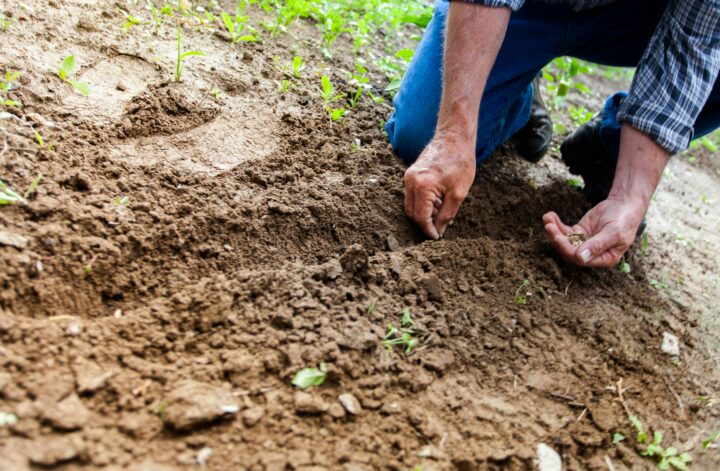Zero waste living aims to minimize waste generation, conserve natural resources, and reduce environmental impact by adopting mindful consumption habits and sustainable practices. In this comprehensive blog post, we’ll delve into practical tips and strategies to help you embrace a zero waste lifestyle and make meaningful contributions to environmental conservation.
Understanding Zero Waste Living
Zero waste living is not about producing no waste at all but rather about reducing waste to the bare minimum and diverting as much waste as possible from landfills and incinerators through recycling, composting, and reusing. It encourages a shift from a linear economy (take, make, dispose) to a circular economy where resources are used efficiently and waste is minimized.
Benefits of Zero Waste Living
Environmental Conservation: Reducing waste helps conserve natural resources, minimize pollution, and mitigate habitat destruction and biodiversity loss.
Resource Efficiency: Embracing a circular economy model promotes efficient use of materials and reduces greenhouse gas emissions associated with waste disposal.
Financial Savings: By reducing consumption and embracing reusability, individuals can save money on unnecessary purchases and disposable items.
Practical Tips for Adopting a Zero Waste Lifestyle
1. Refuse and Reduce
Say No to Single-Use Plastics: Avoid disposable items such as plastic bags, straws, utensils, and water bottles. Opt for reusable alternatives made from stainless steel, glass, or sustainable materials like bamboo.
Minimalist Mindset: Embrace minimalism by prioritizing quality over quantity when making purchases. Declutter your living space and assess your needs to avoid unnecessary consumerism.
2. Reuse and Repurpose
Upcycling Projects: Give new life to old items through creative upcycling projects. Repurpose glass jars as food storage containers, turn old clothes into cleaning rags, or transform furniture with a fresh coat of paint.
Repair and Maintain: Extend the lifespan of products by repairing rather than replacing them. Learn basic repair skills or seek repair services for appliances, electronics, and clothing.
3. Recycle Responsibly
Know Your Local Recycling Guidelines: Educate yourself about what materials are accepted for recycling in your area and how to properly prepare them for recycling. Clean and sort recyclables to ensure they can be processed effectively.
Reduce Contamination: Avoid wishful recycling (putting non-recyclable items in recycling bins) to prevent contamination of recycling streams.
4. Compost Organic Waste
Home Composting: Compost fruit and vegetable scraps, coffee grounds, eggshells, and yard trimmings to create nutrient-rich compost for gardening. Use a compost bin or pile in your backyard to divert organic waste from landfills.
5. Sustainable Shopping Practices
Bulk Buying: Purchase non-perishable items like grains, nuts, and spices from bulk bins using reusable containers or bags to minimize packaging waste.
Local and Seasonal Foods: Support local farmers and reduce carbon emissions associated with food transportation by choosing seasonal produce and locally sourced goods.
Incorporating Zero Waste Principles Into Daily Life
1. Sustainable Transportation
Walk, Bike, or Use Public Transit: Reduce your carbon footprint by choosing eco-friendly transportation options for daily commuting and errands. Carpool or share rides to minimize emissions.
2. Eco-Friendly Household Practices
Energy Conservation: Lower energy consumption by using energy-efficient appliances, LED light bulbs, and smart home technologies. Unplug electronics when not in use and adjust thermostat settings for energy savings.
3. Educate and Advocate
Raise Awareness: Share your zero waste journey and environmental tips with friends, family, and social networks. Encourage others to adopt sustainable practices and advocate for policies that support waste reduction and recycling initiatives.
Overcoming Challenges and Celebrating Progress
1. Start Small, Progress Gradually
Set Achievable Goals: Begin by focusing on one area of your life, such as reducing plastic waste or composting, and gradually expand your zero waste efforts over time.
Celebrate Milestones: Acknowledge and celebrate achievements along your zero waste journey, whether it’s successfully reducing household waste or influencing others to adopt sustainable habits.
2. Seek Community Support
Join Zero Waste Communities: Connect with like-minded individuals through local zero waste groups, online forums, or social media platforms. Share ideas, resources, and encouragement to inspire collective action.
Conclusion
Embracing a zero waste lifestyle is a transformative journey towards sustainability, mindfulness, and environmental stewardship. By implementing practical tips such as refusing single-use plastics, embracing reusability, recycling responsibly, composting organic waste, and advocating for sustainable practices, you can minimize your environmental footprint and contribute to a healthier planet. Adopting a zero waste mindset involves conscious decision-making and ongoing commitment to reducing waste in all aspects of life. Together, let’s embrace the challenge of zero waste living and pave the way for a more sustainable future for generations to come.



